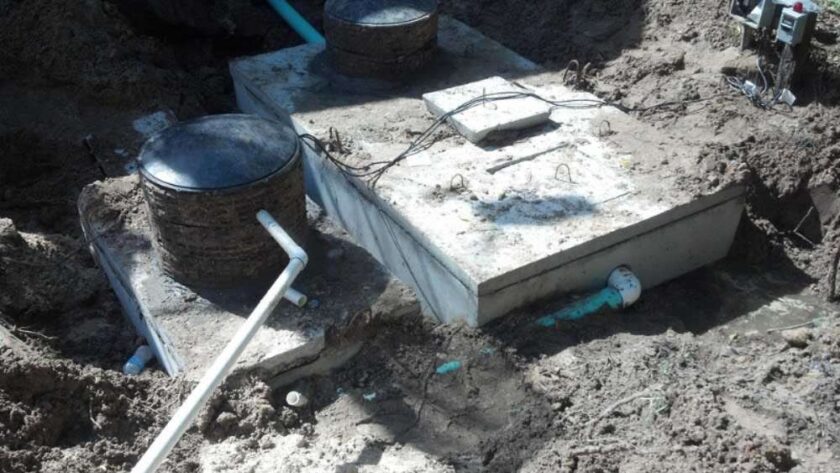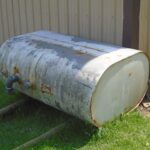Septic systems are integral to effective waste management, especially in areas without centralized sewer systems. They naturally treat wastewater from homes through a combination of technology and nature. The reliability of septic systems in safeguarding public health and environmental quality makes regular maintenance not just advisable but essential. By employing regular septic services, homeowners can stave off numerous issues that negatively impact both the system and the environment.
Septic systems include a reservoir that collects waste from the plumbing in homes. Solid substances sink downwards and create a layer of sludge at the bottom, while liquids flow into a drainage area for natural filtration. Even though they are effective, these systems require regular maintenance to avoid issues such as clogs and unpleasant smells, which can lead to expensive repairs if not dealt with promptly.
Contents
The Basics of Septic Tank Maintenance
Regular septic maintenance is a robust defense against potential system failures. It involves thorough inspections to check sludge and scum levels, possible leaks, and mechanical components’ condition.
It is suggested that septic tanks be pumped every three to five years, varying based on household size and water usage. These precautions guarantee proper flow and filtration of wastewater, preventing the accumulation that may result in overflow or system malfunction.
- Frequency of Service: The frequency of service largely depends on usage and household size. For homes with complex systems involving electrical or mechanical parts, annual inspections are recommended. Regular maintenance checks play a pivotal role in identifying potential issues early. By doing so, homeowners can mitigate risks and uphold the home’s and environment’s health.
Benefits of Routine Service
Engaging in routine maintenance bestows numerous benefits, chief among them prolonging the life of the septic system. This practice reduces the likelihood of backups, unpleasant odors, and system failures.
Moreover, it safeguards health and the environment by ensuring clean and processed waste is discharged. Institutions like the Environmental Protection Agency highlight the importance of routine care as a measure to keep water sources unpolluted and ecosystems balanced.
Common Septic System Challenges
- Poor or inconsistent drainage might result from obstructions in the pipes or a filled tank, causing wastewater to flow back into household plumbing.
- Foul odors can emanate from an overloaded system or leaks, signaling that the system is not processing waste correctly.
- Lush, green patches in the yard above the septic field are often signs of leakage, as excess moisture provides plants with more water than usual.
Signs of a Failing Septic Tank
Identifying signs of septic system problems is essential for prompt action. Slow drainage could suggest there are blockages present or that the septic tank might be getting full. Unpleasant smells by the tank or drain field may indicate leaks or inadequate water treatment, whereas areas of very green grass could signal wastewater leakage.
Addressing these issues with professional help can prevent escalation into more grievous problems, thereby maintaining the system’s operational integrity over the long term.
Professional Septic Services: What to Expect?
When enlisting professional septic services, expect a comprehensive examination of your system. Skilled technicians will inspect the tank’s solid accumulation levels and check for leaks or signs of wear. They will perform pump-outs and necessary repairs, ensuring all components function correctly. The professional approach mandates adherence to local health and sanitation guidelines, ensuring the system’s and the environment’s safety.
How Professionals Help
It is suggested that septic tanks be pumped every three to five years, varying based on household size and water usage. These measures ensure that wastewater flows appropriately and is filtered correctly, avoiding build-up that could lead to system malfunction or overflow. They use sophisticated equipment to identify leaks or obstructions that may need to be apparent to an inexperienced observer.
Moreover, they provide advice on everyday practices to minimize system stress and avoid behaviors that might lead to premature system failures. With professional insight, homeowners can confidently manage their septic systems effectively.
Eco-Friendly Practices for Septic Maintenance
Eco-friendly maintenance practices not only enhance system efficiency but also reduce environmental harm. Water conservation measures like staggered laundry days prevent system stress.
Moreover, refraining from flushing non-biodegradable materials guards the system against blockages. According to the Natural Resources Defense Council, conscientiously managing waste inputs is instrumental in protecting soil and water quality from contamination.
Conclusion: Long-Term Care for Your Septic System
Investing time in understanding and maintaining your septic system is an investment in its longevity and your home’s health. Routine inspections, timely maintenance, and eco-friendly practices are vital to extending the life of your septic system. By working with professionals and adhering to recommended guidelines, homeowners can avoid unnecessary repairs, thereby saving on costs while contributing positively to environmental sustainability.




